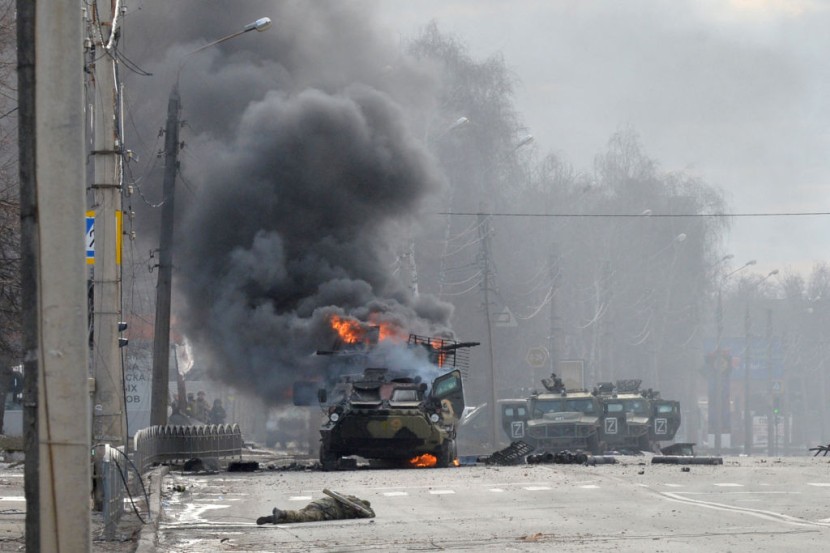
Russian military hackers have set their crosshairs on the mobile devices of Ukrainian soldiers to steal sensitive battlefield data that could aid the Kremlin's ongoing war efforts against Ukraine.
The United States and its intelligence-sharing partners, the "Five Eyes" - Australia, Canada, New Zealand, and the United Kingdom - have warned sternly about this cyber threat, as per CNN.
Russian Hackers Target Ukrainian Soldiers' Mobile Devices
The recent advisory from the United States and its Five Eyes allies confirms the findings of Ukraine's SBU security service that Russian hackers actively sought to infiltrate the Android tablets used by the Ukrainian military for planning and carrying out combat missions.
The insidious nature of this cyber intrusion is made clear by the hackers specifically targeting data transmitted from these devices to Elon Musk's company's Starlink satellite system.
Starlink satellites have played a crucial role in battlefield communications in Ukraine, demonstrating their strategic significance.
Controlling confidential military data in cyberspace has become a crucial battleground in Russia's all-out war against Ukraine. While the extent of the success of the hacking campaign remains unknown, the SBU has confirmed that some hacking attempts were thwarted. However, they also admitted that Russian forces had been able to acquire tablets on the battlefield and implant malicious software on these devices.
This maneuver exemplifies the constantly evolving tactics utilized in modern warfare. Mobile malware is especially pernicious because it can provide intelligence services with the physical coordinates of their targets.
According to John Hultquist, the principal analyst at the Google-owned security company Mandiant, this capability can be "extremely effective on the battlefield."
The potential repercussions of this intelligence collection are vast and far-reaching, spanning from tracking troop movements to identifying vital military installations. The United States and its allies have attributed this cyber activity to Sandworm, a notorious espionage unit within Russia's military intelligence directorate.
This unit has a history of intrusions, including those that disrupted the power supply in Ukraine in 2015 and 2016. Russia's consistent pattern of cyber aggression demonstrates the lengths it is prepared to go to achieve its goals, according to Voa News.
Pentagon's Cyber Command Leads the Charge in Defending Ukraine
The Pentagon has been active in response to these cyber threats. Cyber Command, the espionage unit of the United States military, has conducted offensive cyber operations in support of Ukraine's efforts to defend against Russian aggression.
This demonstrates the growing importance of cyber capabilities in contemporary warfare and the need for nations to develop comprehensive cyber defense strategies.
In addition to Russian cyberattacks, hackers supporting Ukraine have joined the conflict. The Ukrainian government has encouraged tens of thousands of volunteer hackers to launch cyberattacks against Russian assets within Ukraine and on Russian territory.
This digital retaliation highlights the evolving nature of warfare, in which conventional and cyber means are intricately intertwined. Since the beginning of Moscow's full-scale invasion in February 2022, Russian intelligence services have relentlessly attacked the Ukrainian infrastructure via cyberspace.
These cyberattacks have included, among others, data-destroying breaches aimed at Ukrainian energy and transportation infrastructure. Ukraine's digital defenses have shown resilience in the face of adversity, even though some of these assaults have necessitated recovery efforts.
It is essential to observe that determining the true scope and impact of Russian cyber operations in Ukraine remains difficult. The fog of war, in which both parties are motivated to exaggerate their successes and minimize their failures, further complicates the evaluation.
Despite the limited impact of Russian espionage thus far, the ongoing cyberwar in Ukraine is a stark reminder of warfare's evolving nature and cyberspace's central role in modern conflicts. Recent revelations that Russian hackers targeted the mobile devices of Ukrainian soldiers highlight the high stakes in the ongoing conflict between Russia and Ukraine.
Cyberwarfare's convergence with traditional kinetic operations represents a paradigm shift in contemporary warfare, where information is as valuable as firepower on the battlefield. As both parties continue to adapt and innovate on this digital battlefield, the international community must remain vigilant and ready to respond to these evolving threats to global security, ARS Technica reported.
Related Article: Picking Up the Pace: Ukraine's Counteroffensive Enters Zaporizhzhia
© 2026 HNGN, All rights reserved. Do not reproduce without permission.








